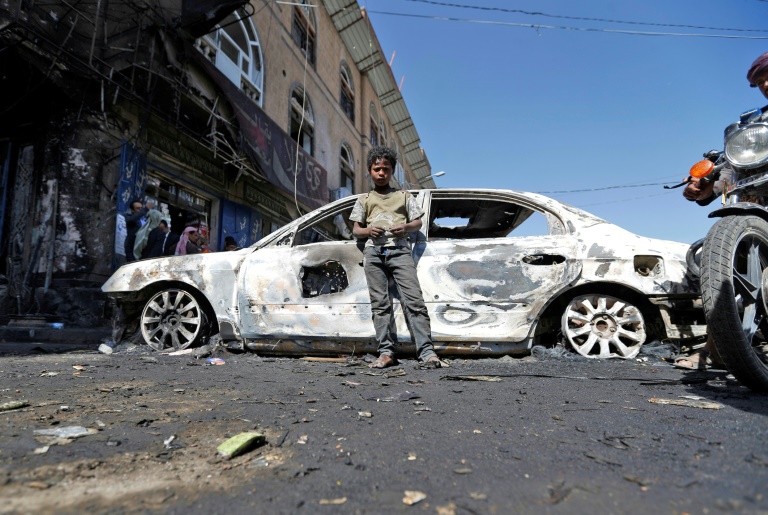US President Donald Trump took the rare step Wednesday of publicly demanding that ally Saudi Arabia immediately allow humanitarian aid into war-ravaged Yemen, as residents in the capital Sanaa scrambled for supplies.
Trump stopped short of calling for a pause in the US-backed, Saudi-led bombing of the country, which is enduring what the United Nations calls the world’s worst humanitarian crisis.
But Trump said he had asked aides to contact the Saudi leadership “to request that they completely allow food, fuel, water, and medicine to reach the Yemeni people who desperately need it.”
“This must be done for humanitarian reasons immediately,” he said in statement.
Saudi Arabia and its allies have launched a campaign to oust Huthi rebels who control Sanaa and have links to Riyadh’s arch foe, Iran.
Seven million people are believed to be on the brink of famine and a cholera outbreak has caused more than 2,000 deaths.
Saudi Arabia imposed a blockade on Yemen’s ports after a Huthi missile was fired toward Riyadh airport on November 4.
The Trump administration, like the Obama administration before it, has struggled to convince Saudi Arabia and the United Arab Emirates to pay more heed to the humanitarian crisis.
The conflict has seen civilians repeatedly killed by bombing and through a lack of access to food and clean water.
– Searching for provisions –
Fighting in Sanaa has spiked in recent days during a showdown between Huthi rebels and loyalists of Yemen’s ex-president Ali Abdullah Saleh.
Saleh was killed at the hands of Huthi rebels Monday and clashes over the past week have seen streets blockaded by warring factions and the setting up of checkpoints.
The International Committee of the Red Cross said Tuesday that at least 234 people had been killed and another 400 wounded since December 1.
Saleh’s death came after he bypassed his Huthi allies of three years, telling the Saudi-led military coalition in Yemen he was ready to negotiate if the crippling siege were lifted.
But the move backfired and Saleh was killed as fighting raged between his forces and the Iran-backed Huthis for control of the capital — a new front in the war.
The ICRC has appealed for “bold measures” to provide life-saving care to civilians after the “unprecedented” escalation of fighting.
In Sanaa on Wednesday, residents said they were finally able to leave their houses and search for basic provisions with the city now in Huthi hands.
Jamie McGoldrick, the UN humanitarian coordinator for Yemen, said aid workers were able to reach a number of hospitals and health posts in the capital to distribute trauma kits and equipment.

He said residents were stocking up on supplies but that fuel shortages were a big concern for the days ahead.
The UN last month warned that Yemen faces a mass famine that will affect millions of lives unless the Saudi-led coalition ends its blockade and allows aid deliveries into the country.
“We’re living in a state of fear. We have no wages, no security, no life,” said a schoolteacher in Sanaa.
America has supported the coalition through weapons sales, air-to-air refueling of jets and some limited intelligence sharing.
Scott Paul, a humanitarian policy leader at Oxfam America, said Trump’s call was long overdue but “hugely important.”
“The past month’s escalation has killed thousands and condemned thousands more to die in the near future. Millions will die in a historic famine and public health crisis if President Trump’s call is not heeded,” Paul said in a statement.
He also noted “the fact that US support has helped create Yemen’s horrific crisis” and called on Washington to cease military assistance if parties don’t agree an immediate ceasefire and a political settlement.






